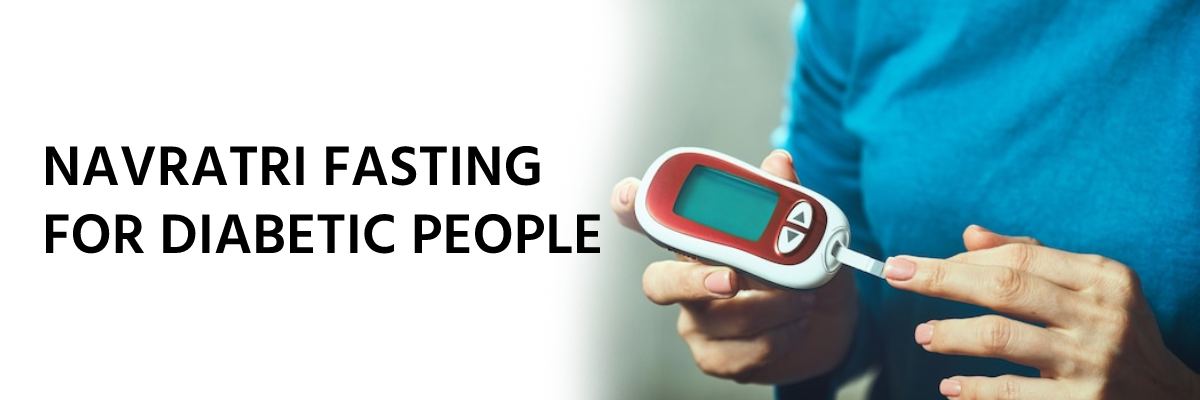
 IJCP Editorial Team
IJCP Editorial Team
NAVRATRI FASTING FOR DIABETIC PEOPLE
Navratri is a nine-day festival characterized by fasting and worshipping Goddess Durga. It occurs twice a year and is celebrated by Hindus in India and across the globe with great enthusiasm. However, it could be challenging for people with diabetes as they should be highly cautious regarding their diet and eating patterns.
Navratri fasting is intermittent fasting generally followed in two ways: first, every day fasting, and second, alternate day or two days a week fasting. A fasting pattern where people eat all meals within an 8-hour window, followed by 16 hours of fasting, is preferable for diabetic people. Daily fasting help to formulate a dietary pattern and adjust the medication accordingly. However, it is advisable to consult the doctor before planning for a fast.
Do fasting pose health benefits for people with diabetes?
Healthy body weight is one of the primary factors for diabetes management. Intermittent fasting, if carried out judiciously, can help in weight loss, thus assisting in controlling diabetes and preventing the health risks associated with high blood sugar levels. Clinical research evidenced that intermittent fasting can lower insulin resistance in people with type 2 diabetes. Other potential benefits include reduced appetite, improved insulin sensitivity, lower blood pressure, lower oxidative stress, and increased fat oxidation.
What are the risks of fasting for diabetic people?
The primary health concern for diabetic people during fasting is hypoglycemia or hyperglycemia. Irregularities in diet and medication can cause blood sugar imbalance causing adverse health outcomes and even potentially diabetic ketoacidosis. Another major health concern for diabetic people during fasting is dehydration.
How can diabetic people do healthy fasting?
During the fasting period, the eating pattern changes drastically. Diabetic people must be conscientious about their food choices and diet, especially during fasting, as it is crucial to maintain healthy blood sugar levels. A few tips for Navratri fasting are:
Plan and maintain a balanced diet by including food from all the food groups.
Include low to medium glycemic index food like buckwheat (kuttu atta or singhara atta) as it is rich in fibers that take time to digest and enable slow release of sugar in the body, thus maintaining the blood sugar levels.
Plan a diet that includes a variety of protein sources like milk, curd, cottage cheese, and other dairy products.
Fasting foods are generally loaded with lots of potatoes and fried foods. Diabetic people need to be very careful and should opt for healthy alternatives.
Drink plenty of water and choose sugar-free and decaffeinated drinks to avoid dehydration.
Do not overeat during the post-fast meal; instead, distribute your meal in small portions at regular intervals.
What health measures should be taken by diabetic people before and during fasting?
Consult your Physician regarding diet recommendations and adjustment of medication or insulin dosages.
Monitor your blood sugar levels frequently, as long periods without eating can cause blood sugar imbalance.
Restrictive food intake can trigger irritability, anxiety, mood swings, and difficulty coping with stress. Do not starve, and keep yourself adequately hydrated.
Fasting can make you feel tired and exhausted. Drink plenty of water and healthy drinks, and eat small meals at regular intervals.
Balance your carbohydrate intake, as fasting foods are generally rich in carbohydrates, leading to a spike in blood sugar.

IJCP Editorial Team
Comprising seasoned professionals and experts from the medical field, the IJCP editorial team is dedicated to delivering timely and accurate content and thriving to provide attention-grabbing information for the readers. What sets them apart are their diverse expertise, spanning academia, research, and clinical practice, and their dedication to upholding the highest standards of quality and integrity. With a wealth of experience and a commitment to excellence, the IJCP editorial team strives to provide valuable perspectives, the latest trends, and in-depth analyses across various medical domains, all in a way that keeps you interested and engaged.










.jpg)








.jpg)

Please login to comment on this article